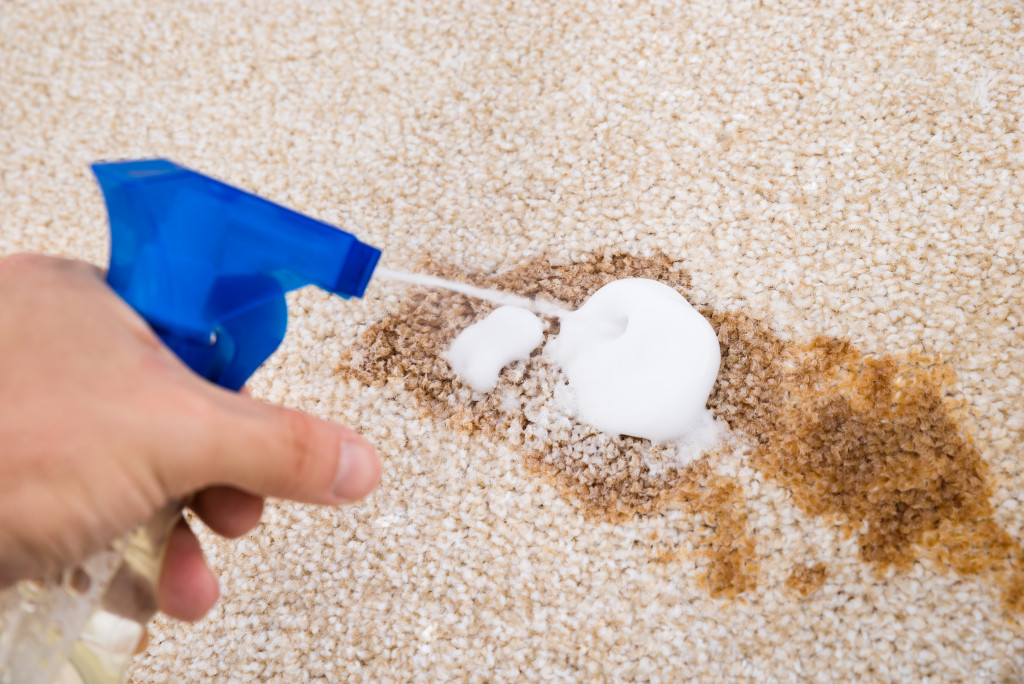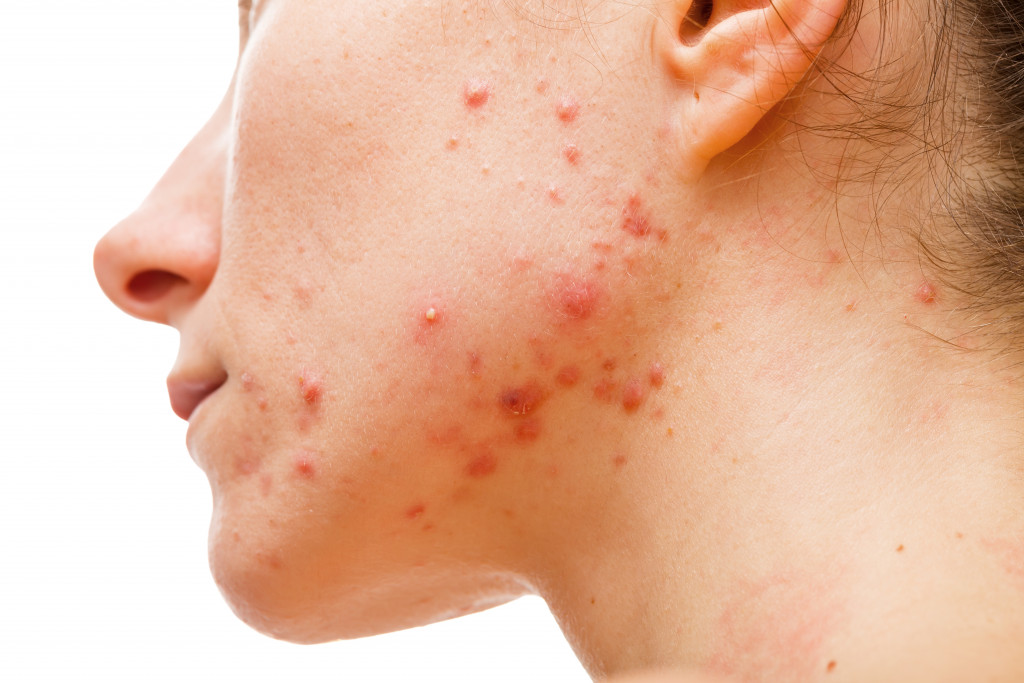- The skin, comprised of the epidermis, dermis, and subcutis, is a barrier against environmental elements.
- Dirt can cause skin problems such as acne and irritations by damaging the skin’s protective barrier.
- Dirt can clog pores, cause bacterial infections, worsen skin conditions, and lead to premature aging.
- Regular face washing, hand hygiene, and gentle exfoliation can help mitigate the effects of dirt on the skin.
- Using appropriate skincare products that suit individual skin types is essential for maintaining skin health.
Dirt can be a problem when it comes to skincare. The bacteria and other microorganisms present in dirt can lead to various problems. This is why you need to know how dirt can affect your skin. Here’s a short look into the anatomy of your skin, how dirt can affect it, and ways you can reduce its damage over time.
Anatomy of Your Skin
Your skin comprises three layers: the epidermis, dermis, and subcutis. The epidermis is the outermost layer that acts as a barrier against environmental elements. It also contains melanin, which gives your skin its color and protects it from UV rays. The dermis is where you’ll find collagen, elastin, and other connective tissues that give your skin strength and elasticity. Finally, the subcutis is the innermost layer that contains fat and provides insulation and protection for your organs.
Dirt And Your Skin
Dirt can be a major cause of skin problems, especially when it comes to acne. The bacteria present in dirt can clog pores and lead to breakouts. On top of that, the harsh particles in dirt can also cause irritations and damage to your skin’s protective barrier.
How Dirt Affects Your Skin
When dirt comes into contact with your skin, it can penetrate through the epidermis and cause damage to the underlying layers. Here are some ways that it can affect your skin:
1. Clog Pores
Perhaps the most well-known impact of dirt on skin is its ability to clog pores, leading to the formation of pimples, blackheads, and other forms of acne. This occurs when dirt, oil, and other debris accumulate on the skin’s surface and block the opening of hair follicles. This can be particularly problematic for people with oily or combination skin, as excess oil production can exacerbate the problem. To minimize the risk of acne breakouts, wash your face twice daily with a gentle cleanser and avoid touching your face with dirty hands.
2. Bacterial Infection
In addition to clogged pores, dirt can also lead to bacterial infections on the skin. This is more likely to occur in areas consistently exposed to dirt and grime, such as the hands and feet. If you have an open cut or wound on your skin, exposure to dirt can increase the risk of infection. To avoid this, keep any wounds clean and covered, and wash your hands thoroughly and frequently.
3. Skin Condition
For people with skin conditions such as eczema, psoriasis, or rosacea, exposure to dirt can make symptoms worse. This is because dirt can irritate the skin and trigger inflammation, increasing itching, redness, and flakiness. To minimize the impact of dirt on these conditions, try to avoid touching your face or affected areas as much as possible, and opt for gentle, fragrance-free skincare products that won’t aggravate your skin.
4. Premature Aging
Finally, exposure to dirt and pollution can also contribute to premature skin aging. This occurs when pollutants in the air break down collagen and elastin in the skin, leading to fine lines, wrinkles, and loss of elasticity. To combat this effect, try to stay indoors during high pollution and use skincare products that contain antioxidants and other anti-aging ingredients.
Ways to Reduce Damage from Dirt
While it’s impossible to completely avoid dirt, there are ways you can reduce its damage to your skin:
1. Wash Your Face Regularly
Washing your face twice daily is crucial for removing dirt and other impurities that accumulate on the skin throughout the day. Use a gentle cleanser that won’t strip away too much of your skin’s natural oils. Additionally, when using your makeup after you wash up, ensure you use acne-safe makeup for the skin. This makeup ensures that dirt and other impurities don’t return to your skin.
2. Keep Your Hands Clean
Your hands come into contact with a lot of dirt and bacteria throughout the day, so it’s important to wash them regularly. This will not only keep your hands clean but also prevent any transfer of dirt onto your face or other parts of your body.
3. Exfoliate Regularly
Exfoliating your skin once or twice a week can help remove any dead skin cells and dirt that may be sitting on the surface. Be gentle when exfoliating, as over-exfoliation can damage your skin’s protective barrier.
While dirt is an unavoidable part of our environment, understanding how it interacts with your skin can help mitigate its effects. Regular cleansing, maintaining hand hygiene, and gentle exfoliation are key in keeping our skin healthy and radiant. Just as important is using appropriate skincare products that suit our skin type and address our specific needs. Remember, everyone’s skin is unique, and what works for one person may not work for another.


